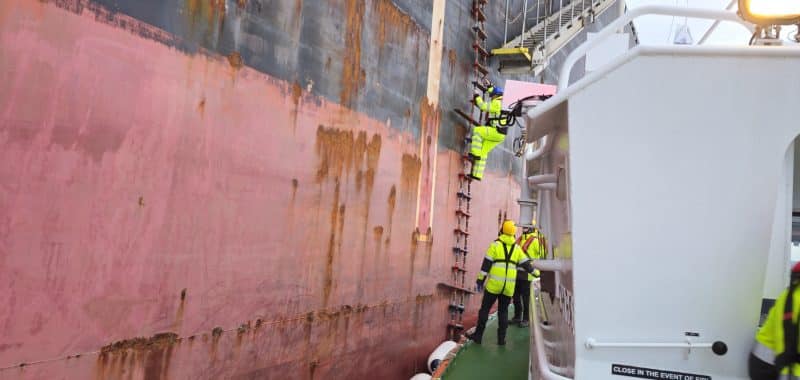Importance of Regulatory Compliance in the Maritime Industry
Regulatory compliance in the maritime industry is crucial for ensuring safety, protecting the environment, enhancing operational efficiency, avoiding legal and financial consequences, and maintaining stakeholder trust. Compliance requires navigating a complex and evolving landscape of regulations, demanding significant technical, operational, and financial investments. Marine consultants are vital in helping maritime companies manage these challenges effectively.
Key Reasons for Regulatory Compliance
Safety of Life at Sea The primary goal of regulations like the International Convention for the Safety of Life at Sea (SOLAS) is to ensure the safety of vessels, crew, and passengers. Compliance helps prevent accidents and enhances maritime safety by setting minimum safety standards for ship construction, equipment, and operation.
Environmental Protection Regulations Such as the International Convention for the Prevention of Pollution from Ships (MARPOL) aim to minimize marine pollution. Compliance ensures ships operate in an environmentally friendly manner, reducing the impact on marine ecosystems. MARPOL mandates systems for managing oil, sewage, and garbage, and adherence to discharge standards.
Operational Efficiency Adhering to regulations enhances operational efficiency by ensuring well-maintained ships with trained crews, reducing delays and disruptions. Effective compliance also minimizes the likelihood of accidents, legal issues, and reputational damage, ensuring smoother operations.
Legal and Financial Implications Non-compliance with maritime regulations can lead to severe legal and financial consequences, including fines, vessel detention, and legal actions. Maintaining compliance helps avoid these risks and ensures uninterrupted maritime operations.
Reputation and Trust Regulatory compliance is essential for maintaining stakeholder trust, including customers, insurers, and investors. A good compliance record enhances a shipping company’s reputation and can lead to better business opportunities. Companies known for strict adherence to regulations are more likely to attract business partners and customers who value safety and environmental responsibility.
Challenges and Complexities in Adhering to Maritime Regulations
Diverse and Evolving Regulations The maritime industry is governed by a complex web of international, regional, and national regulations. Keeping up with constant changes and updates is a significant challenge, requiring continuous monitoring and adaptation.
Technical and Operational Requirements Regulations impose stringent technical and operational requirements. For instance, SOLAS mandates specific safety equipment, while MARPOL requires waste management systems. Implementing and maintaining these systems is technically challenging and costly.
Training and Awareness Ensuring crew members are aware of and trained in the latest regulations requires ongoing training programs and effective communication channels. Continuous education is necessary to keep up with evolving standards.
Inspection and Certification Ships must undergo regular inspections and certifications to prove compliance. Coordinating these inspections, ensuring timely completion, and maintaining documentation can be complex and time-consuming.
Cost Implications Compliance often requires significant financial investment in new technologies, equipment, and training. Smaller shipping companies may find it particularly challenging to allocate the necessary resources for compliance.
Enforcement and Monitoring Ensuring continuous compliance involves regular monitoring and enforcement, especially in international waters far from regulatory authorities. Companies must implement robust monitoring systems and processes.
Role of Marine Consultants
Marine consultants provide expert advice and services to the maritime industry, helping ensure efficient, safe, and compliant operations. Their roles include:
Regulatory Advisory Consultants keep abreast of changes in maritime regulations and provide guidance on compliance. They offer interpretations of complex regulations, helping clients understand their obligations.
Compliance Audits and Inspections Consultants conduct pre-audit assessments, internal audits, and gap analyses to identify non-compliance issues and recommend corrective actions, ensuring continuous compliance.
Documentation and Record-Keeping Consultants assist in preparing and maintaining required documentation, ensuring all records are accurate and readily available for inspections.
Training and Education Consultants provide training programs focused on regulatory compliance, conducting awareness programs to keep staff informed about new and existing regulations.
Technical and Operational Support Consultants help implement systems required for compliance, advising on operational changes needed to meet regulatory standards and providing ongoing technical support.
Liaison with Authorities Consultants act as intermediaries between maritime companies and regulatory authorities, facilitating smooth communication and resolution of compliance issues.
Conclusion
Regulatory compliance in the maritime industry is essential for safety, environmental protection, operational efficiency, legal conformity, and maintaining a good reputation. Achieving compliance involves navigating evolving standards, technical requirements, training needs, and financial investments. Marine consultants play a critical role in helping maritime companies achieve and maintain compliance, contributing significantly to the overall sustainability and success of maritime businesses. Their expertise ensures the safe, efficient, and environmentally responsible operation of vessels.


